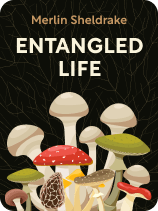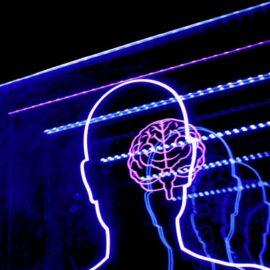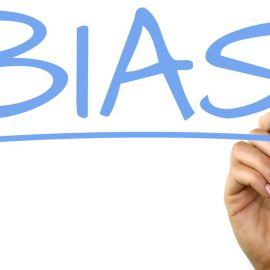

This article is an excerpt from the Shortform book guide to "Entangled Life" by Merlin Sheldrake. Shortform has the world's best summaries and analyses of books you should be reading.
Like this article? Sign up for a free trial here.
Are fungi intelligent? What can fungi teach us about our own intelligence?
According to Merlin Sheldrake’s book Entangled Life, fungi possess a form of intelligence that’s very similar to our own. Because fungi can make decisions themselves, it’s possible that intelligence isn’t something that’s binary; rather, it’s a spectrum.
Continue reading to learn how fungi intelligence can change ideas about intelligence as a whole.
Intelligence in Fungus
According to Sheldrake, we typically define intelligence based on whether a living thing possesses a brain. Creatures like humans and dogs are intelligent, and creatures that lack brains (like fungi) lack intelligence.
However, Sheldrake claims that fungi intelligence is linked to a behavior that we consider “smart”: decision-making. For instance, fungi use their hyphae to gather sensory input, then they respond by changing how they grow—either toward or away from stimuli. Sheldrake calls this a decision because fungi use the information they’ve gathered from sensory inputs to choose one course of action (such as growing toward a stimulus) over another (such as growing away from it). In calling this type of decision a form of intelligence, he references the Latin roots of the word intelligence, which means “to choose between.”
Given fungi’s ability to make decisions, Sheldrake argues that we should do away with our limiting binary of “intelligent” and “unintelligent” as well as the idea that you must have a brain to possess intelligence. Instead, we should instead think of intelligence as a spectrum. With this view, most organisms would be regarded as having some degree of intelligence based on their decision-making abilities.
Other Definitions of Intelligence
The question of “What is intelligence?” is often debated, and there’s no single definition of intelligence. Some dictionary definitions, for instance, make the brain and the mind central to the word’s definition. Other dictionary entries highlight decision-making. Some definitions are even inclusive of non-human intelligence, instead defining the word as the ability to adapt to one’s environment. Let’s see how Sheldrake’s proposed definition of intelligence—as a spectrum of decision-making abilities—compares to how experts on plant biology and human psychology conceptualize intelligence.
Plant intelligence: Michael Pollan, author of The Omnivore’s Dilemma and In Defense of Food, shares Sheldrake’s view that our typical definitions of intelligence tend to ignore the varieties of intelligence non-humans display. Pollan argues that intelligence may be a property of all life, including plant life. He cites research in plant biology suggesting that plants possess abilities we typically only associate with large-brained beings:
- First, plants may process information. For instance, some plants release defensive chemicals in response to caterpillars nibbling on their leaves.
- Second, plants may remember information. For example, ferns can change how their leaves fold in response to surrounding movement depending on whether that movement has harmed them (or not) in the past.
Human intelligence: Some psychologists share Sheldrake’s contention that we should eschew the binary of “intelligent” and “unintelligent.” However, they don’t propose defining intelligence along a spectrum; instead, they propose the idea that there are multiple types of intelligence, and different people possess different combinations of intelligence.
For instance, in Emotional Intelligence, Daniel Goleman says that humans possess two main types of intelligence. Cognitive intelligence is how well you learn information, whereas emotional intelligence is your awareness of your own and others’ emotions.
According to some experts on human intelligence, recognizing multiple types of intelligence also affirms the value and humanity of neurodivergent people—those whose brains work or develop differently from the majority, such as people with autism and dyslexia. For instance, one writer claims that employers should learn about how intelligence presents in neurodivergent people so they don’t pass over candidates who could contribute unique skillsets to their workplace.

———End of Preview———
Like what you just read? Read the rest of the world's best book summary and analysis of Merlin Sheldrake's "Entangled Life" at Shortform.
Here's what you'll find in our full Entangled Life summary:
- An examination of what we know and don't know about fungi
- How fungi can help solve many modern-day problems
- The three most important benefits of fungi






